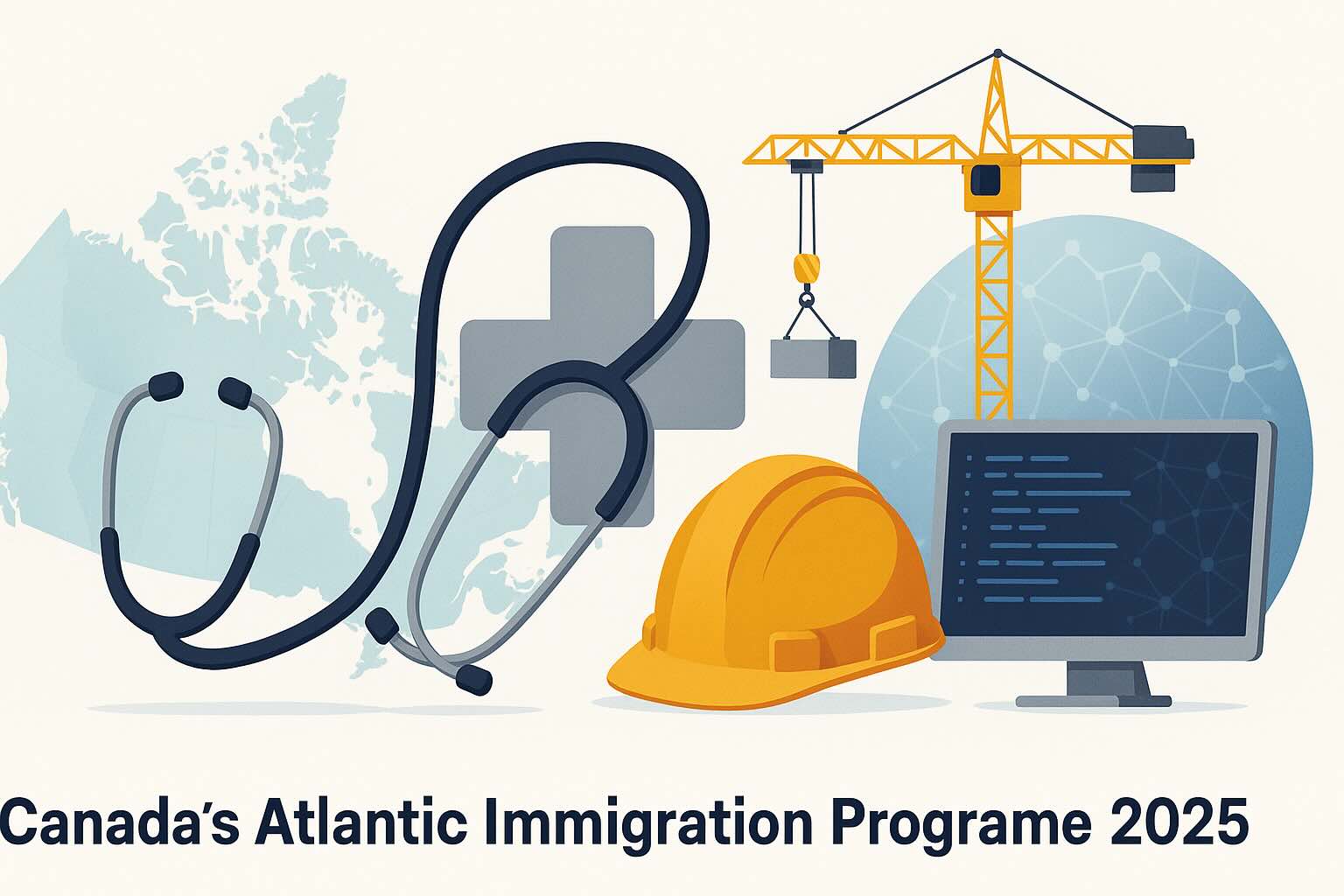
Northwest Territories Restores 2025 Nominee Quota to 2024 Levels, Allowing Up to 300 Nominations
The Government of the Northwest Territories (NWT) has announced that its 2025 Northwest Territories Nominee Program (NTNP) allocation has been restored to 2024 levels following federal approval. The total quota will rise to 300, up significantly from 197 earlier this year. Minister of Education, Culture, and Employment Caitlin Cleveland stated that preparations are underway for the next NTNP intake period, which will open additional pathways for skilled workers to obtain provincial nomination. This adjustment makes the NWT the first jurisdiction in 2025 to regain its pre-reduction quota, marking a key milestone in the territory’s ongoing efforts to address critical labor shortages through immigration.
10/21/2025

Canada Closes Permanent Residence Pathway for Overseas Caregivers
Immigration, Refugees and Citizenship Canada (IRCC) recently updated its official website to indicate that the "applicants not working in Canada" stream under the Home Care Worker Immigration Pilots (HCWP) has been officially closed. This stream was marked as "closed" on September 29, 2025, without ever having opened to accept applications since the program's launch. Despite this closure, overseas caregivers still have alternative pathways to immigrate to Canada through Express Entry, Provincial Nominee Programs, and other routes. Industry analysts suggest this decision may be linked to severe application backlogs and the federal government's policy shift toward prioritizing the transition of temporary residents already in Canada to permanent residence status.
10/02/2025

Saskatchewan Receives Increased Immigration Allocation, Creating New Opportunities for Priority Sectors
The Canadian province of Saskatchewan has announced that its 2025 Provincial Nominee Program (SINP) has received an additional 1,136 nominations from the federal government, bringing its total annual allocation to 4,761. This adjustment reopens application pathways for several sectors that were previously paused due to reaching their caps. Against a backdrop of diverging immigration allocation trends across Canada, this development in Saskatchewan, along with increases in several other provinces, highlights the complex and evolving landscape of federal and provincial immigration policies.
08/29/2025

Canada's Atlantic Immigration Program: 2025 Updates See Provinces Prioritize Key Sectors and Occupations
In 2025, Canada's Atlantic Immigration Program (AIP) is entering a new strategic phase due to adjusted federal immigration allocations. To manage reduced quotas, the four Atlantic provinces are concentrating their resources on key sectors vital to their local economies. Healthcare, construction, and information technology have become focal points for attracting talent. This report provides an in-depth analysis of the latest priority sectors and occupations for each province, examines the alternative pathways available in New Brunswick following its AIP pause, and offers authoritative guidance for applicants planning to immigrate through this program in 2025.
08/21/2025

Focusing on Labour Market Needs: Newfoundland and Labrador's Latest Immigration Draw Targets 359 Candidates
On July 10, 2025, Newfoundland and Labrador's Office of Immigration and Multiculturalism (OIM) issued 359 Invitations to Apply (ITAs) for provincial immigration to foreign nationals. Spanning both the Provincial Nominee Program (NLPNP) and the Atlantic Immigration Program (AIP), this draw explicitly requires candidates to hold a job or job offer from a local employer and prioritizes professionals in key fields like healthcare, information technology (ICT), and aquaculture to meet the province's urgent labour market needs.
07/25/2025

QS 2026 Best Student Cities Revealed: Four Canadian Cities in Top 100
Global higher education analyst Quacquarelli Symonds (QS) has recently released its 2026 Best Student Cities ranking. Four Canadian cities—Montreal, Toronto, Vancouver, and Ottawa—have secured spots in the top 100. While these cities are lauded for their excellent student feedback, diversity, and university quality, their overall scores are weighed down by consistently low marks in affordability. Notably, all four cities have seen a significant drop in their rankings compared to the previous year. This trend not only reflects a broader challenge faced by North American cities but also introduces new factors for international students to consider when planning their education in Canada.
07/20/2025

Policy Reversal: Canada Postpones Tightening of PGWP Rules, More International Students to Benefit
In a surprise announcement, Immigration, Refugees and Citizenship Canada (IRCC) has revealed it will postpone the implementation of a highly-watched measure to tighten eligibility for the Post-Graduation Work Permit (PGWP). Certain study programs slated for removal from PGWP eligibility on June 25, 2025, will now remain eligible until early 2026. This adjustment not only safeguards students who applied for study permits during the policy transition period but has also temporarily increased the total number of PGWP-eligible programs, marking a significant boon for students in non-degree college programs, who are the primary group affected.
07/16/2025

Canada Tightens Temporary Foreign Worker Policy: 26 Major Cities Halt Processing of Low-Wage LMIA Applications
On July 11, the Canadian government updated its list of restricted regions for the Temporary Foreign Worker Program (TFWP). According to the latest directive, 26 Census Metropolitan Areas (CMAs) across the country will suspend the processing of "low-wage stream" Labour Market Impact Assessment (LMIA) applications due to unemployment rates at or exceeding the 6% threshold. This measure is a continuation of a policy announced by the federal government in early 2024, aimed at protecting job opportunities for local residents in areas with high unemployment. The expansion of this list, which includes major immigration destinations like Toronto and Vancouver, undoubtedly has profound implications for many foreign nationals and their employers seeking to obtain or extend work permits for low-wage positions.
07/12/2025

Canada Adjusts Financial Requirement for International Students, Effective September
Immigration, Refugees and Citizenship Canada (IRCC) announced on June 2, 2025, an upcoming adjustment to the proof of funds requirement for study permit applicants. Effective September 1, 2025, a single applicant will need to demonstrate access to at least C$22,895 for living expenses. The change, which excludes applicants destined for Quebec, is intended to ensure the financial threshold accurately reflects Canada's current cost of living.
07/04/2025

Canada Overhauls PGWP-Eligible Programs to Align with 2025 Labour Market Demands
On June 25, Immigration, Refugees and Citizenship Canada (IRCC) announced a sweeping overhaul of the eligible fields of study for the Post-Graduation Work Permit (PGWP). The changes, designed to align the program with Canada's projected labour market needs for 2025, introduce 119 new eligible programs while removing 178. The new policy heavily favors fields such as healthcare, education, and the trades, while significantly scaling back eligibility for programs in transport and agriculture. These adjustments will primarily impact international students in non-degree programs who apply for their study permit on or after November 1, 2024.
06/26/2025